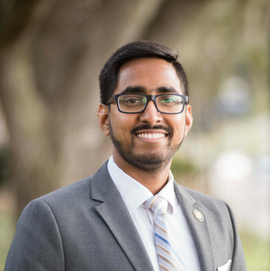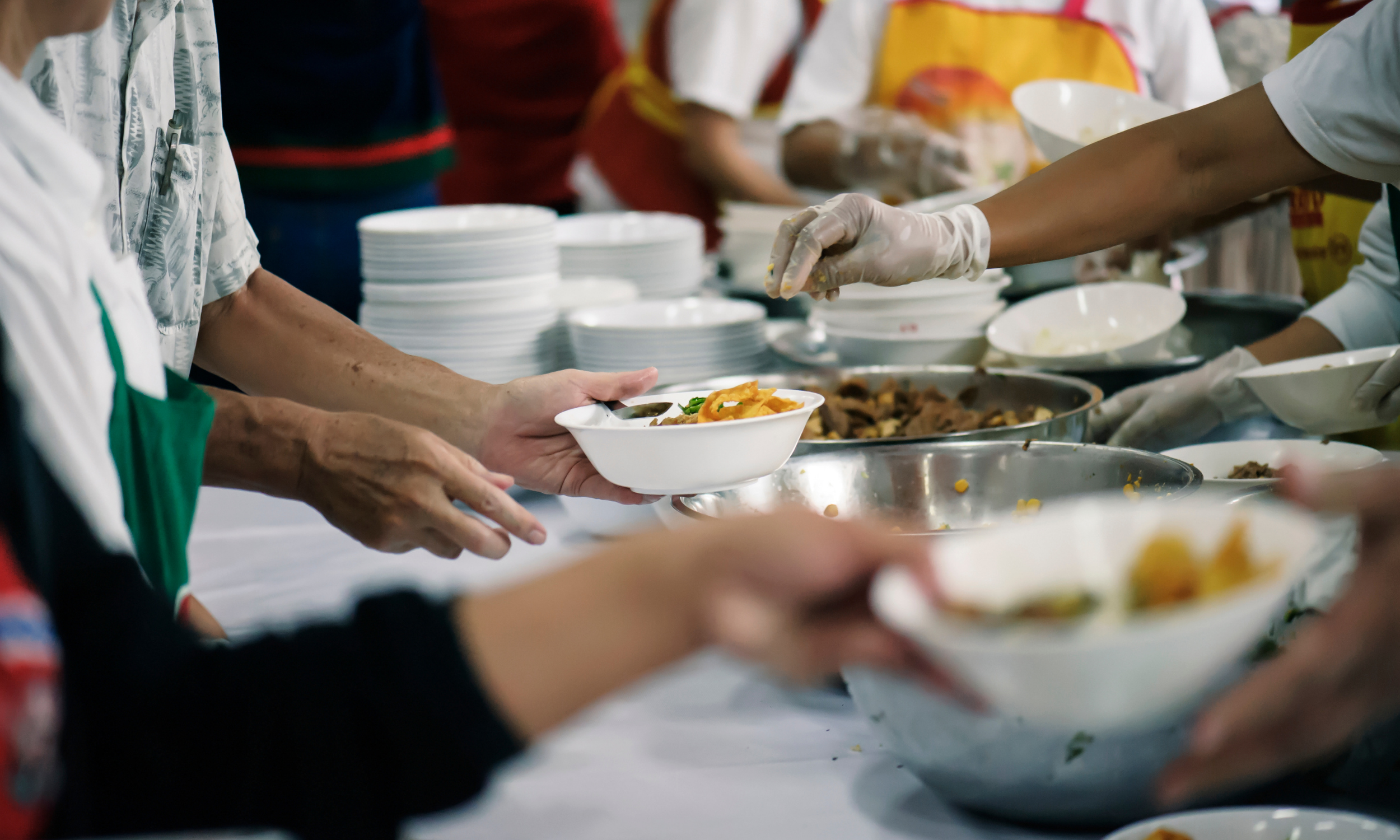To some, the UGA college experience means long afternoons in the Main Library, or Saturdays at Sanford Stadium, but to Nipuna Ambanpola (’21), UGA is the next step in a lifetime of public service and innovative problem-solving. Last year, his tech nonprofit IVolunteer International won $5,000 from the Georgia Kickstart Fund, the student-led startup housed in the UGA Entrepreneurship Program in the Terry College of Business.
Ambanpola, a native of Sri Lanka and current Master of Public Administration student, has volunteered regularly since his youth. A Rotary International scholarship in 2015, earned partially on the strength of his work in its  high school version, InterAct, sent him to study in the United States, at Armstrong State University (now Georgia Southern University-Armstrong Campus). He immediately began looking for service opportunities in the Savannah area but was disappointed.
high school version, InterAct, sent him to study in the United States, at Armstrong State University (now Georgia Southern University-Armstrong Campus). He immediately began looking for service opportunities in the Savannah area but was disappointed.
“Volunteering wasn’t actually part of my life when I came here, because it was so hard to find opportunities,” said Ambanpola. The projects available to an outsider would require him to join groups, attend weekly meetings, and/or pay membership fees, all of which are significant barriers for most college students.
Ambanpola’s first solution was to create student organizations, including a chapter of RotarACT Club at Armstrong, a student alumni association, and a resident students’ group. “I was filling a vacuum in me,” he said, “because [volunteering] was really a big part of my life.”
This gap in opportunity, however, formed the kernel of an idea. In 2017, he and two friends founded IVolunteer International, a tech nonprofit connecting volunteers to service projects worldwide. They developed a website and a Facebook page, invited community hosts to post projects, and promoted those projects to potential volunteers. Free usage for both host and volunteer helped establish an eager and large following, from local food banks to the Italian Diplomatic Academy, which solicits 1,500 volunteers worldwide each year for its Model United Nations program in New York City.
He knew that the success of IVolunteer was outpacing his administrative abilities. “I started a nonprofit without a nonprofit / public service background,” he shared. His early education on the topic was informal, through mentoring relationships, online research, and Facebook groups.
In 2019, Ambanpola joined the Master of Public Administration program in SPIA. “To take IVolunteer International global, I wanted to get public service knowledge, public service experience, and hands-on skills, in an environment that is globally scalable,” he said. “UGA is definitely a global school.”
The MPA curriculum, hands-on, up-to-date, and interactive, turned out to be exactly what he was looking for. “When I came to UGA, the [discussion of theories of] ‘why’ behind public service decision making was really clarifying.”
In his introductory MPA class, “Dr. [Eric] Zeemering was incredibly conversational,” he said. “I had so many things to bounce off him . . . I found myself learning public service theories and applications from 30-40 people instead of one.” Foundations of Policy Analysis with Dr. Emily Lawler helped him draw connections between economic principles and real-world policy impacts, and Public Budgeting and Finance with Dr. Michelle Lofton taught about governmental budget processes, and the importance of the timing of grant applications.

